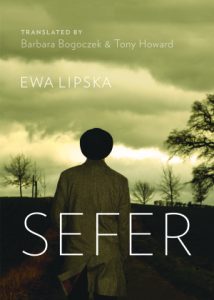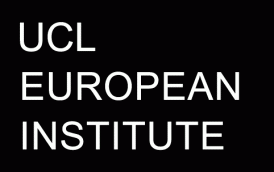Ewa Lipska
Sefer
Journeys Through Memory – the Healing Image
Wednesday 7 May 2014, 6-8 pm.
Senior Common Room, 4th floor
UCL School of Slavonic and East European Studies
16 Taviton Street, London WC1H 0BW
Registation
For further details please contact: u.chowaniec@ucl.ac.uk
“All of us, regardless of our historical situations, are hunting for our past….
We’ll always be talking it through with our psychotherapists, with historians
– today’s detectives.” Ewa Lipska
More about the author here

Programme:
- Introduction (Urszula Chowaniec)
- Reading: excerpts from Ewa Lipska’s novel Sefer (Ewa Lipska in Polish and Tony Howard in English)
- Discussion: Ewa Lipska, Francois Guesnet (UCL), Katarzyna Zechenter (UCL), Barbara Bogoczek , Tony Howard (Warwick University), Urszula Chowaniec (UCL/AFM KU)
- Q&A
- Reception and book signing
(with music based on motifs from Sefer)
Ewa Lipska, Sefer, English translation by Barbara Bogoczek and Tony Howard. Published in Canada by AU Press, Athabasca University Press, 2012
Free PDF available on the Publisher’s site here
Excerpts:
I had a remarkably original father. Father
owned the Sefer publishing house, which, although it
didn’t bring in any income, helped him cope with his
fear of depressive memories, and with claustrophobia.
Fortunately he also worked at an historical institute —
as a detective, because after all who but a detective can
write history. He left behind an unravellable will, with
which I’m still struggling today. I was an only child. In
my youth I dreamed of becoming a doctor, a solicitor,
a beggar, a musician, an actor, a demon, and a salesman.
But I went along with the wishes of my whole family,
read medicine, became a psychiatrist, and I practice
psychotherapy now. Thanks to which, I became linked
forever with the demons of our time.
***
The clerk stopped her work, looked at the postman and said:
“But that’s why my marriage collapsed. I predicted my
husband’s death.”
“What? Your husband’s alive, isn’t he?”
“Exactly. We were young, healthy, and in love, then one
night I dreamt I was in mourning. All that remained of
my husband in my dream was his absence. I woke up in fear
and trembling. He was still lying next to me. It seemed to
me he wasn’t breathing anymore. I tugged at his hand, and
I couldn’t believe it when he suddenly jumped up, asking
what had happened. Had something happened? Ludicrous
question, isn’t it? I began to cry a lot. I was weeping for
him. With every knock on the door, I expected a Notification
of Death. Meanwhile he kept on going out to work. And
coming back. I cooked him cranberry compote but behaved
like a widow. I started buying black dresses, blouses, jackets.
We began living a life after death. Something had to happen,
I knew. Because it was all predicted. One day my dead
husband, whom I so adored, applied for a divorce at the
district court . . . I don’t even know where he’s buried.”
She confirmed it by stamping another letter.
The postman asked, “Isn’t this work boring?”
“No. Why? There’s a different date stamp every day.”
***
On our way to the hotel Maria and I talked about
the double nature of language, which can suddenly flick
you from a smart sophisticate into a lout. Just a moment
ago language was entertaining us with the brilliance
of its wit and palette, only to announce suddenly in the
middle of the town square: “I’m kurwa trying to explain
it to him, and he just gobbles up his fucking sausages!”
Maria went back to rejoin her friends while I phoned
Doktor A. at the clinic. He read me part of a letter from
a patient whose history he’d tried to build into a case
study: “Dear Herr Doktor, why won’t I answer personal
questions? Because I never answer personal questions. Do
you remember what Goethe wrote about Werther? ‘Oh, how
often I’ve cursed those foolish pages that made my youthful
torments public property!’ We live in an age of collective
exhibitionism; we strip ourselves naked mercilessly, down
to the bare void. The void that traps us forever. And you,
Herr Doktor, think that I’ll tell you everything, undress down
to the last nerve. You all know too much about me anyway.
I bet when I’m wired up for my ECG, you’re recording the
love inside my heart. Nowadays everything belongs to
everybody and nobody.” Doktor A.: “So I arranged to
meet him outside the clinic. And in two hours he told
me much more than I would’ve got on the record.”
“And how’s your vegan blonde?” I asked. “Or is she
a kosher brunette now?” “Not yet, but you’d better
come back to Vienna soon. I don’t like diagnosing
over the phone.”
About the book:
Description
Lucy Popescu’s review
Justyna Sobolewska’s review
Also
Piotr Gwiazda’s review of Sefer in The Times Literary Supplement, Published: 22 February 2013;
Chris Miller’s review: The Warwick Review, Vol.VII NO.4 December 2013, p.14




Recent Comments